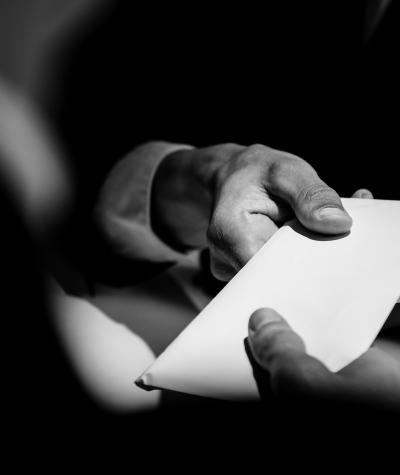When campaigning for public office, federal candidates have to be honest with the public about who is giving their campaign money. Transparency regarding the sources of election spending is vitally important to our elections, as complete and accurate information about who is spending money to back candidates empowers voters to more meaningfully evaluate their choices.
Federal campaign finance laws support transparency by requiring that candidates disclose all campaign contributions, and by prohibiting campaign contributions made in the name of another person. In other words, every contribution has to be disclosed in the name of whoever is actually giving money to the campaign.
It’s illegal to make contributions through a “straw donor” — a person or entity that receives money for the purpose of making a contribution and then passes that money on to a campaign in their own name.
Liam Madden, a candidate who ran for Vermont’s At-Large House seat in the 2022 election, appears to have violated these federal laws by orchestrating a straw donor scheme in which he drew money from his wife’s business and used it to contribute over $25,000 to his campaign in his own name and in the names of his family members — including his young child.
Madden set up this scheme to make it look like his campaign had raised over $35,000 — the reported threshold for participating in a candidate debate — even though his campaign clearly had not raised that amount. In fact, Madden’s campaign later reimbursed at least $13,500 to Madden and falsely reported those disbursements as payments to campaign “staff.”
Madden served as his own campaign treasurer, so he also signed off on falsified campaign disclosure reports indicating that Madden and his family donated $25,600 that was actually contributed by his wife’s business. That business, in turn, appears to have made either illegal corporate contributions (if the business was incorporated) or contributions in excess of the $2,900 per-election limit that applies to individuals and unincorporated entities.
The most galling aspect of this scheme is that Madden acknowledged his illegal actions, insisting that everything he did was legal.
During a radio interview with The Morning Drive on WVMT on October 27, 2022, just days before the 2022 general election, Madden admitted that he withdrew money from his wife’s business account and distributed it to his family members for them to contribute to his campaign in their own names.
Madden asserted that he had taken advantage of a “legal loophole” — but what he did is actually a textbook example of an illegal straw donor scheme. In fact, Madden’s actions are exactly like an example in the Code of Federal Regulations used to illustrate what an illegal straw donor scheme looks like.
Madden also acknowledged that because he “couldn’t afford” these contributions and needed to replenish the funds taken from his wife’s business, his campaign later reimbursed him with fake “candidate salary” payments.
While $25,000 may not be a lot of money in the grand scheme, as our elections are routinely flooded with super PAC spending funded by billionaires and corporate special interests, straw donor schemes are a threat to transparency and undermine voters’ confidence in our elections. It’s vital that the Federal Election Commission (FEC) protect voters by taking action and enforcing the law.
Moreover, as we’ve recently been reminded by Rep. George Santos, the truth-challenged federal candidate who lied his way to Congress and into likely criminal violations of federal campaign finance laws, candidates that dupe the public with half-truths and outright fabrications erode the public’s trust in government and do real harm to the integrity of our elections.
The clearest solution is for government regulators to investigate and enforce these laws, thereby holding candidates accountable and protecting the integrity of our elections. Campaign Legal Center (CLC) has filed a complaint with the FEC urging the agency to do just that — investigate Madden’s outrageous behavior and enforce the federal laws that uphold electoral transparency.
Voters have a right to know who’s really spending money to influence elections. It’s time for the FEC to do its job and take action to protect our elections and the rights of voters.

